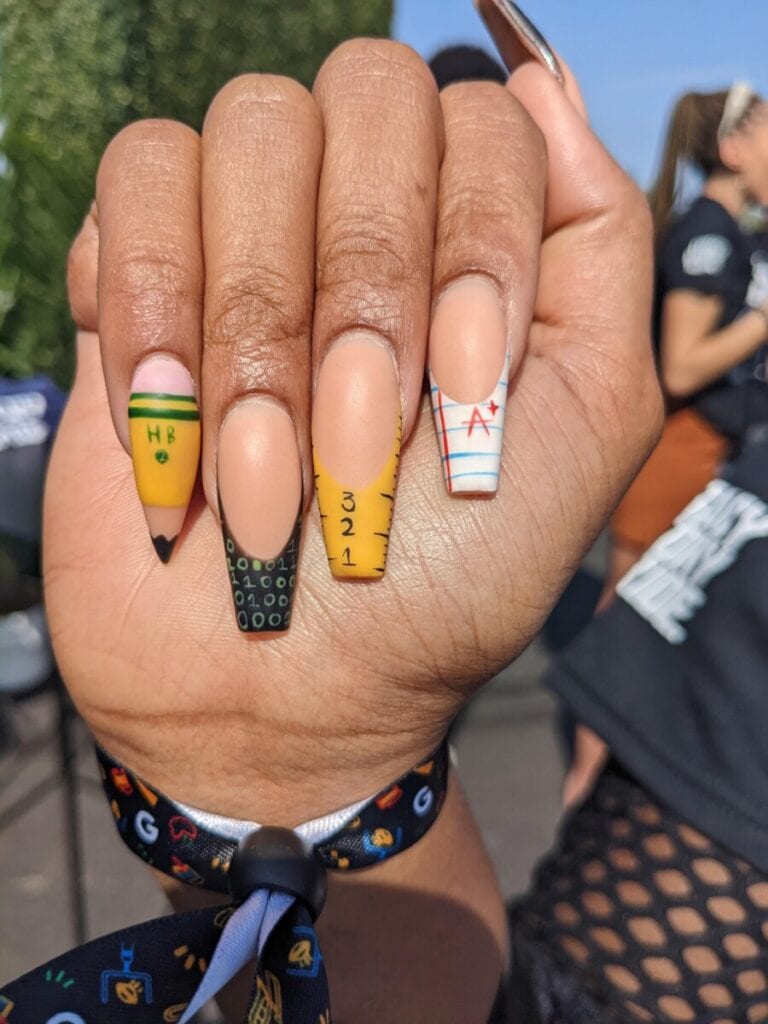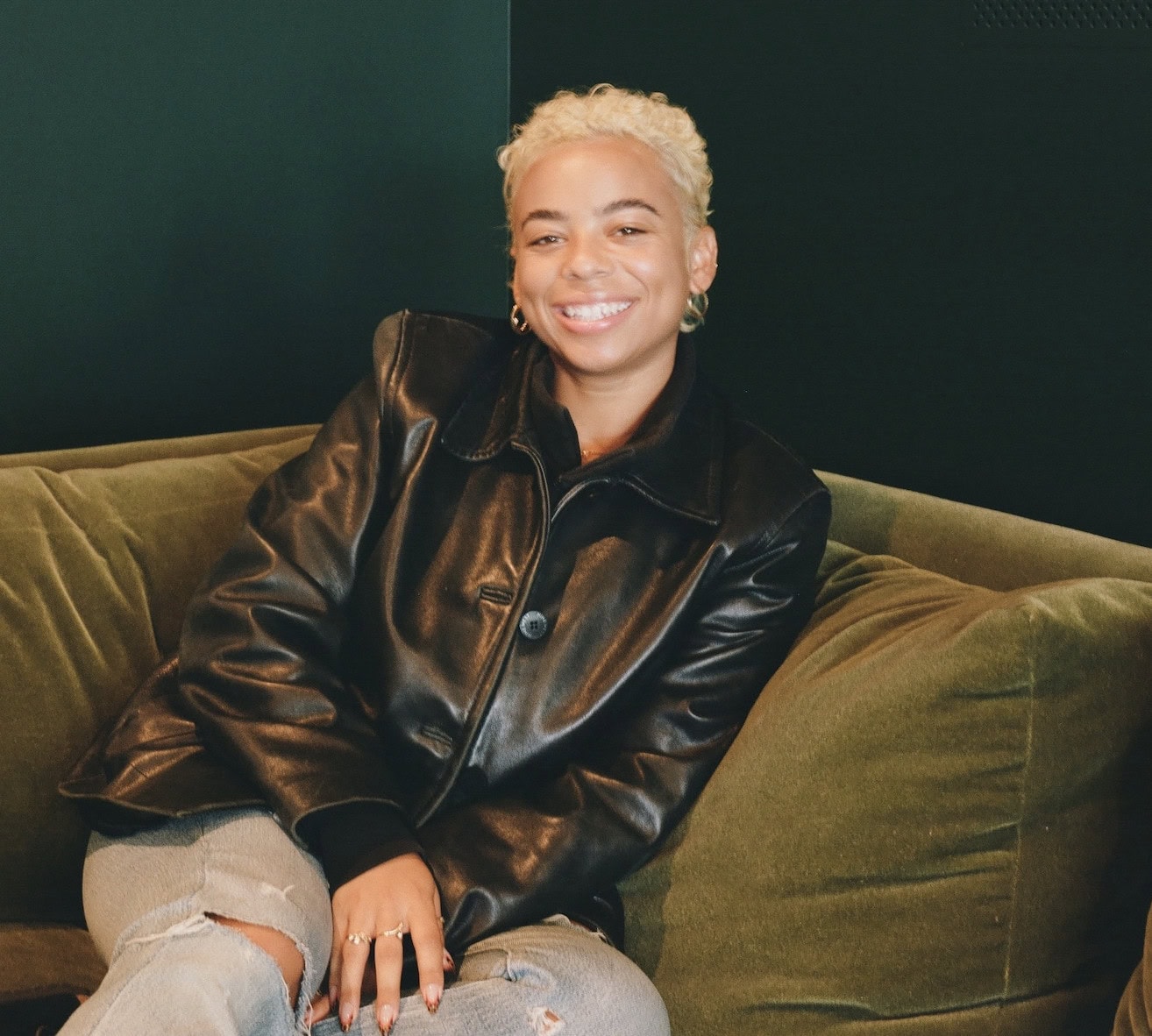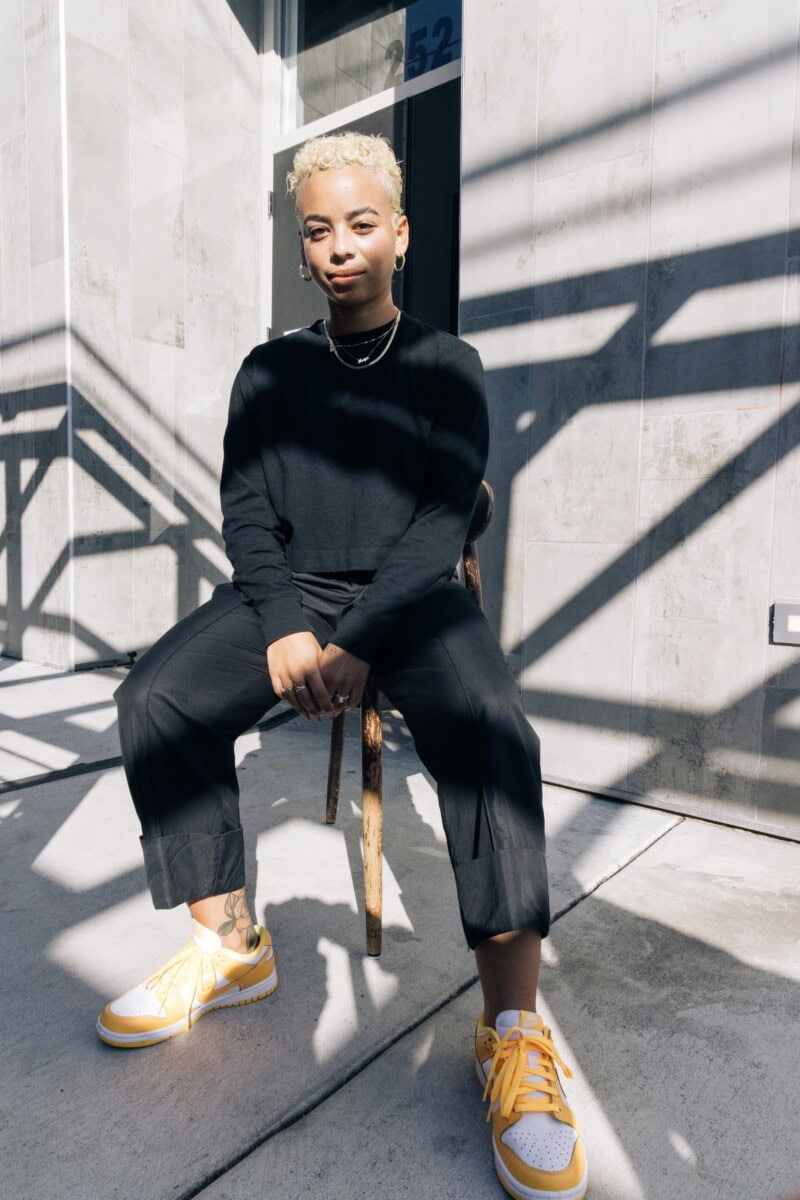Boardroom spoke to three Black women about their entryway into tech, and their experiences working for big tech companies such as Meta, Twitter, Microsoft, and Google.
There is no need to sugarcoat the sad reality that Black women make up only 3% of the tech industry workforce.
There are countless industry reports and statistics that illustrate this lack of representation in plain terms — all-too-often accompanied by tone-deaf advice on how to bridge the tech talent gap. Evolving this landscape for the better is going to take more than launching educational programs and inking partnerships with historically Black colleges and universities. It’s going to take intentionality and authentic investment to get more Black women into the tech industry; they can’t be expected to climb to the top again and again on their own without positive structural changes.
Boardroom spoke to three Black women about their experiences working for Big Tech companies like Meta, Twitter, Microsoft, and Google, to get a fuller understanding of what these companies need to do to help more Black women realize their dreams and enter the field.
Alanna Walton, Jamila H. Lindo, and Maya Gold Patterson have worked at the biggest tech brands in the world, building products that consumers from all backgrounds use on a daily. Their resumes speak for themselves, so Boardroom took a deeper dive with them into the state of diversity in the tech industry, and how they continuously push for more visibility for Black women in tech.
Alanna Walton
Alanna Walton will tell you that her tech dreams date back to high school when she took her first coding class, but she’s been a technologist for far longer than that — she got her true start in the tech field when launched a YouTube channel at the age of 12.
Walton became a naturally curly-hair vlogger to review products and earn some money. She reached out to hair product companies and built a full-fledged side hustle where she was shooting and editing videos, uploading them online, and managing partnerships to grow her brand.

“My dad bought me a green screen and I learned how to use green screen technology. I was really into that stuff,” Walton told Boardroom of her entrepreneurial origin story. “Being in technology is kind of in my blood. My dad works in tech [and] my grandmother has worked in tech, so I had that influence. I thought I would never want to do it because they both did it, but it kind of just fell upon me.”
Now, Walton is a software engineer at Google, where she works on the big tech company’s responsible AI team with a focus on data pipelining. Ultimately, she said she’s been able to be successful in the tech industry by staying curious and up-to-date on cutting-edge phenomena like artificial intelligence.
Walton said she isn’t coding as much in her current role, however, but is mostly consumed instead with building out strategies.
“My team specifically does work to try to make AI less racist and provide specific context about different identity groups to help make better products at Google,” she said. “It’s very important work that we do every day and it requires a lot of cohesion, so you’re just in meetings all the time.”
Walton secured her current role after interning at Google every summer during her time studying at Howard University, where she earned a degree in computer science. Walton said hackathons helped her land a job at Google, which are 24-hour competitions that call on teams of engineers to code a product or solutions. Walton actually participated in hackathons in college to earn money.
“You get so much experience being able to iterate very quickly, being able to create things, [and] trying out new languages just by testing out technologies using real-world situations,” she said.
While Google has made a lot of strides over the years to grow more diverse, Walton said her employer still has a lot of work to do. One thing she did applaud parent company Alphabet for is its commitment to supporting Black employees and investing in the Black tech talent pipeline. Through a Google-supported program, Walton spent a semester teaching an intro-level computer science course at Xavier University to help expose students to tech roles not typically known for having diverse workforces.
“They paid me my full salary even though I was not doing any engineering work at the time because that was really important for them to close that gap in the pipeline for the amount of people graduating with computer science degrees and the amount of people in the tech industry at the big companies,” she said.

Walton said the goal of this program was to help get Black students internships at Google, and she’s proud to share that she got a few into the fold with the hope that they continue interning and ultimately secure a job just like she did. During her time teaching with Google, Walton asked her students why they think there’s a gap in the tech talent pipeline. Almost all of them said tech careers aren’t marketed as aggressively to Black students — and if they were, they would have started on such a career path earlier.
“Communities of color don’t get a chance to get the head start on being in this field,” Walton said. “There are disparities there that need to be adjusted. I don’t think that’s something that Google can do by itself, but it’s something it can promote industry-wide and work with elementary schools and middle schools to fuel that pipeline earlier so more people can get these opportunities.”
If Walton wasn’t doing tech, she said she would be a lawyer or a doctor or something of the like, but tech is her honest passion, and she even said it saved her. To get more Black women like herself in the industry, Walton said it’s going to take Big Tech companies creating safer spaces and hosting more unconscious bias training that can resonate with non-Black employees.
Looking ahead, while Walton is helping train AI at Google, she’s also taking entrepreneurship classes at the University of California, Berkeley to build out a potential tech startup focused on customer discovery.
We don’t want to give away too much too early, but we’re invested in championing Walton’s next move.
Jamila H. Lindo
Jamila H. Lindo is a civil engineer and author who has worked on various tech teams at Meta and Microsoft. She earned a bachelor of science in civil engineering at Manhattan College before acquiring a master’s degree in construction management from Columbia University. During her master’s program, Lindo interned at Microsoft as a program manager in the company’s data center construction division, which exposed her to new roles in tech.

“I studied civil engineering in college, and that path is rather untraditional for people in tech,” Lindo told Boardroom. “Coming from a civil engineering background, I came from a very unique place. [Microsoft] inspired me to continue my journey in tech and manage numerous projects.”
Lindo said she was motivated to pursue her career after participating in a program in high school that took students on tours of Big Tech company offices. She vividly remembers touring Microsft and Tumblr and meeting employees.
“That really started my dream of being in tech,” she said. “I always would wander websites to see any opportunities I’d be able to contribute to with my diverse background.”
After making the pivot to program management, Lindo spent nearly a year working at Meta as a technical program manager, supporting Instagram’s in-app messaging product called Instagram Direct. She was recently laid off from the company, though she hopes to land another role in program management in the tech industry.
On the flipside, Lindo continues to lead J.H. Lindo, the media company she founded that celebrates STEM exploration. Her company’s signature book, Girls Can Be Engineers, encourages young girls of color to explore careers that men typically dominate. In a different world, Lindo said she’d probably be an author since she loves writing and inspiring people through her words.

All told, Lindo said it’s going to take more visibility and recognition for Black women to expand their presence across the tech industry, media, and beyond.
“Keep the highest version of yourself in mind,” Lindo said of aspiring Black women technologists. “You never know what could happen in the end.”
Maya Gold Patterson
Maya Gold Patterson is the VP of design at Riverside, an online recording platform for content creation. Before taking on her current role, she spent three years working at Twitter as a product designer, where she most notably helped build Twitter Spaces.

Patterson earned a degree in psychology at Washington University in St. Louis before discovering UX design as her true passion. Before working at Twitter and Riverside, she worked on product design at Meta’s Facebook for two years. Patterson said Dantley Davis, a notable product and design executive who led design teams at Netflix, Meta, Twitter, and now Nike, discovered her work after she began writing about her design experiences. He recruited her from Chicago to go work in Silicon Valley, and her design career skyrocketed from there.
“He brought me to Facebook to bring some of my perspectives of the world and how I use design,” Patterson said. “You gotta go where the players play, and in tech, that was Silicon Valley.”
Patterson calls Twitter Spaces one of the hallmark projects of her career. She was part of the flagship team that built and designed Twitter Spaces from scratch, so she decided to take her design talents to the startup world; she joined Riverside in March.
“Earlier on in my career, Twitter was incredible. There was no one that looked like me in Chicago doing what I was doing,” she said. “Twitter was my liferaft that helped me navigate through the very choppy and scary waters of tech.”
Patterson always envisioned herself working at a big tech company, specifically in social media, because she was fascinated by the way people communicate with each other. During her time at Twitter, Patterson said she met people at the company that had similar backgrounds and experiences as her, and she still considers them friends today.
“I really feel that people need that strong community to learn in a safe manner in order to spread their wings and go after their goals,” Patterson said. “[I feel like] working in big tech would help immerse me amongst the best of the best.”

In another life, Patterson would probably be a stylist that went on tour with musicians to help craft their looks for their gigs. Since she lives and breathes styling and music outside of product design, Patterson said this would be an ideal career for her. Still, she’s hyperfocused on dominating the tech industry.
Patterson passionately spoke about how much Black women have already invested in and given to this industry more than it deserves in its current form, and that it’s long past time for Big Tech to do its part and give Black women their flowers and their respect. She feels like Black women consistently prove to be incredibly resourceful, but more support could help unlock entirely new levels of success.
Patterson believes Black women are uniquely valuable and can bring different perspectives to the tech industry. She said now it’s time for the tech industry to realize that and find new ways to attract and retain Black women technologists, and that the resets and self-reflections forced upon us all by COVID can be used to help move the needle.
“Increasing diversity is always an advantage to a company, and remote work is, I believe, one of the keys to doing that,” she said.
In five to 10 years, Patterson said she still sees herself designing and building products. She might not know what those products are just yet, but she looks forward to advancing her career with like-minded individuals.
Black women technologists: If you’re at an earlier stage of your career, here’s what Patterson has to say about kicking doubt to the curb:
“Thinking about how I felt early on, I believed in myself, but I was terrified,” she said. “Don’t worry too much about the fact that you don’t know all of the things…you’re going to learn that. Focus more on your own talents and what you’ll bring to these companies and to yourself.”